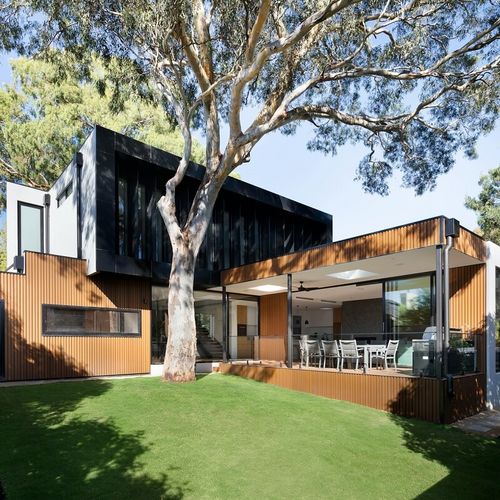Pros of Renting a Home:
- Flexibility 🏃♂️:
- Renting offers more flexibility since leases are typically short-term (e.g., one year). If you need to move for a job or personal reasons, it’s easier to break a lease than sell a house.
- Renting is ideal for people who might want to relocate soon or are unsure of where they want to live long-term.
- Lower Upfront Costs 💸:
- Renting typically requires a security deposit and the first month’s rent, which is significantly lower than the down payment, closing costs, and other fees associated with buying a home.
- No need to worry about large initial expenses like home inspections or appraisal fees.
- Maintenance and Repairs 🛠️:
- Renters are not responsible for maintenance or repair costs. If something breaks (e.g., plumbing, appliances, or the HVAC system), it’s usually the landlord’s responsibility to fix it.
- This can save renters both money and the hassle of dealing with contractors or emergency repairs.
- Lower Financial Risk ⚖️:
- Renters aren’t affected by fluctuations in the housing market. If home values drop, renters don’t lose money.
- Renting doesn’t tie up as much of your savings or affect your credit score, which can be important if you want to maintain financial flexibility.
- Predictable Monthly Expenses 📊:
- Rent is typically a fixed monthly amount, making it easier to budget. Renters don’t have to worry about fluctuating property taxes, insurance premiums, or the maintenance costs that homeowners face.
Cons of Renting a Home:
- No Equity Building 💔:
- Rent payments go to your landlord and don’t contribute to building equity. Over time, renters are essentially paying for someone else’s property, not gaining ownership.
- If you rent for a long time, you might miss out on potential price appreciation and equity growth from owning a home.
- Limited Control 🎨:
- Renters may not be able to personalize or renovate the space to their liking. Restrictions on pet ownership, paint colors, and other modifications are common.
- Renters may face rent hikes when their lease ends, making their housing costs unpredictable.
- Stability Concerns ⚠️:
- Landlords can decide to sell the property, not renew your lease, or increase rent prices. This can leave renters with less security and potential disruptions.
- No Tax Benefits 💰:
- Renters miss out on tax deductions available to homeowners, like deductions for mortgage interest and property taxes.
Pros of Buying a Home:
- Building Equity 🏠💪:
- As you pay off your mortgage, you build equity in the property, which can grow over time if the home’s value appreciates.
- Equity can be used later for things like home equity loans or to help purchase another home.
- Stability 🔒:
- With a fixed-rate mortgage, your payments remain the same throughout the life of the loan, offering more predictable housing costs than renting.
- You aren’t at the mercy of a landlord who might increase rent or decide to sell the property.
- Personalization and Control 🖌️:
- Homeowners have the freedom to modify their property as they wish—whether it’s painting walls, renovating rooms, or installing new fixtures.
- You can truly make the house your own.
- Tax Benefits 💸:
- Homeowners can deduct mortgage interest and property taxes from their income taxes, potentially saving thousands of dollars annually.
- This can significantly offset the higher costs of homeownership.
- Long-Term Investment 📈:
- Homes generally appreciate over time (though not always), and you may be able to sell for a profit in the future.
- Real estate can serve as a long-term investment that increases in value, helping build wealth over time.
Cons of Buying a Home:
- High Upfront Costs 💰:
- Buying a home typically requires a down payment (often 10%-20% of the purchase price), closing costs, and other fees (e.g., inspection, appraisal). These can amount to tens of thousands of dollars.
- Homeownership requires more initial financial commitment than renting.
- Maintenance and Repairs 🛠️:
- Homeowners are responsible for all repairs and maintenance costs, including issues with plumbing, roofing, and appliances.
- Over time, these costs can add up significantly, and there’s no landlord to call when something breaks.
- Less Flexibility 🚶♂️:
- Selling a home can take time, and you might not be able to move as easily if your life circumstances change (e.g., job relocation, family changes).
- Homeownership may not be ideal for those who need to move frequently or want the flexibility to try out different locations.
- Financial Risk 📉:
- If the housing market drops, the value of your home can decrease, leaving you with a potential loss if you need to sell.
- If you have a variable-rate mortgage, your monthly payments could increase if interest rates rise.
- Ongoing Expenses 💸:
- Homeownership comes with ongoing costs like property taxes, homeowner’s insurance, and utilities. Some neighborhoods may also have HOA (Homeowners Association) fees.
- These costs can be unpredictable and can increase over time.
When Renting Makes Sense:
- You’re unsure where you want to settle long-term 🤷♂️.
- You don’t have enough savings for a down payment and closing costs 💵.
- You want the flexibility to move easily 🏃♂️.
- You don’t want to deal with the responsibilities of home maintenance and repairs 🛠️.
- Housing prices are high in your area, and renting is more affordable in the short term 💸.
When Buying Makes Sense:
- You plan to stay in one place for at least 5-7 years or more 🏡.
- You have the financial stability to afford a down payment and handle homeownership costs 💰.
- You want to build equity over time 💪.
- You’re ready to take on the responsibility of maintaining a property 🛠️.
- Interest rates are low, and it’s a good time to buy in your area 📉.


